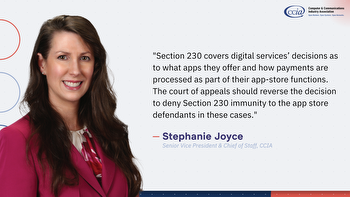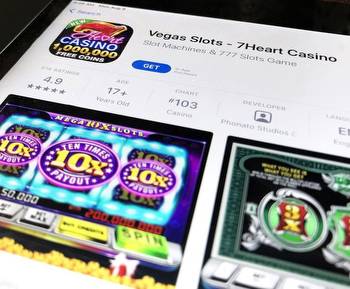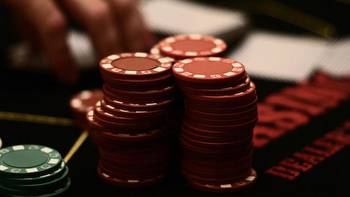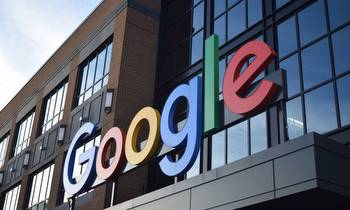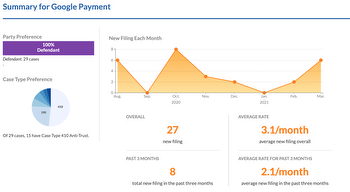In casino app cases against Apple, Google and Meta, judge queries 9th Circ. on immunity issue

(Reuters) - It is a rare and wondrous thing for a federal judge to admit that he could use some help interpreting complicated precedent.
So cheers are in order for U.S. District Judge Edward Davila of San Jose, California, who is presiding over three big class actions in which consumers allege that Apple Inc, Google LLC and Facebook parent Meta Platforms Inc promote illegal online gambling through so-called social casino apps.
In a consolidated Sept. 2 decision addressing all three cases, Davila rejected two of the plaintiffs’ theories of liability against the online platforms, holding that Google, Apple and Facebook are immune under Section 230 of the Communications Decency Act from claims that they offered access to the casino apps and provided the app developers with data and other services to help them target big spenders and retain users.
Davila refused to dismiss plaintiffs’ third claim, ruling that Section 230 does not shield the websites from liability for processing (and taking a cut) of consumers’ payments for the virtual “chips” required by the casino apps.
But Davila said he might be wrong about the scope of Section 230 immunity – and that it makes sense to find out sooner rather than later what the 9th U.S. Circuit Court of Appeals thinks of his decision. The judge invoked a provision of the U.S. Code that allows trial courts, on their own, to certify certain rulings for interlocutory appeals.
“This case involves controlling questions of law, namely whether the platforms are entitled to immunity for their hosting of the allegedly unlawful social casino apps,” Davila wrote. “While the court believes it has followed the 9th Circuit's precedent on this complicated question, the court finds that reasonable minds could differ as to the outcome.”
In such circumstances, the judge said, an immediate appeal will ensure that no one wastes time and money litigating cases whose parameters could change drastically if Davila misinterpreted 9th Circuit precedent.
The parties must still petition the 9th Circuit to grant review of Davila’s decision, but the judge’s certification substantially increases the odds that the appeals court will hear the case before the litigation goes any farther. After all, as Davila pointed out, if the 9th Circuit disagrees with his holding that the Apple, Google and Meta can be held liable for processing payments for gambling chips, the litigation is over. (The judge stayed the underlying cases until the 9th Circuit decides whether to take up the appeal.)
Lead plaintiffs lawyer Rafey Balabanian of Edelson said the judge was right to tee up the case for the 9th Circuit. “The court's choice to make the decision immediately appealable is a welcome one,” Balabanian said in an email statement. “This case puts at issue tens of billions of dollars lost by ordinary hard-working Americans, and Section 230 is one of the platforms' primary defenses. We believe that an affirmance by the 9th Circuit will provide a clear roadmap for the remainder of these cases." (Edelson has previously won hundreds of millions in settlements from social casino apps the firm accused of facilitating illegal online gambling.)
I also reached out to Apple counsel from DLA Piper, Google lawyers from Baker & McKenzie and Facebook counsel from Gibson, Dunn & Crutcher. Apple and Google lawyers did not respond. Christopher Chorba from Gibson Dunn referred me to Facebook, which didn’t provide comment on Davila’s ruling or his certification of the decision for immediate appeal.
The judge’s decision methodically analyzed the 9th Circuit’s key precedent on the scope of Section 230 immunity. The critical question, according to Davila's reading of such cases as 2016’s Doe v. Internet Brands Inc and 2021’s Gonzalez v. Google LLC is whether plaintiffs are attempting to blame platforms for their own alleged misconduct or for alleged misconduct by third parties whose content appears on the platforms.
In the Doe case, for instance, the 9th Circuit ruled that Section 230 did not shield a website from an aspiring model’s allegations that it negligently failed to warn her and other users that two rapists were using the site to lure women to fake auditions. And in the Gonzalez decision, the appeals court held that Google was not liable to terrorism victims for airing ISIS videos on YouTube – but that Section 230 did not immunize the company from claims that it assisted ISIS by sharing advertising revenue with the group.
“Liability turns on the degree of control that a website exercises over the offensive content,” Davila concluded. “Section 230 is not limitless. While its origin demonstrates a preference for immunity, it is not meant to immunize a website's own bad acts.”
Applying that standard to the allegations in casino app cases, Davila said it was easy to dismiss claims that Google, Apple and Facebook were liable for offering access to – and even promoting — social casino apps. The judge said it was tougher to decide whether Section 230 precludes claims that the platforms helped the gambling apps attain and attract users by offering design and advertising advice and data analytics. Davila decided that although Google, Apple and Facebook benefited financially from the casino apps' popularity, their support was akin to publishing advice and therefore shielded by Section 230.
But plaintiffs’ allegation that Google, Apple and Facebook enabled the sale of virtual chips to be used for online gambling, Davila said, is “grounded in the platforms' own bad acts, not in the content of the social casino apps that the platforms display on their websites.” The judge said that in his analysis, Section 230 does not immunize online platforms for their own participation in allegedly illegal transactions.
If I were a betting woman — which I am not — I’d guess that the 9th Circuit will agree to review Davila’s decision, given the magnitude of consumers’ alleged losses and the novelty of their surviving theory.
Even if the appeals court disagrees with Davila's conclusions, the judge is a winner in my book.
Opinions expressed are those of the author. They do not reflect the views of Reuters News, which, under the Trust Principles, is committed to integrity, independence, and freedom from bias.












